Nature is currently experiencing an intense heatwave. Rivers, canals, and ponds have dried up, creating a dire need for water everywhere. Yet, unexpectedly, the Jamuna River has begun to erode during this unseasonal drought. This has put thousands of people living along the riverbanks in jeopardy. In an effort to protect themselves from the erosion, local worshippers have gathered at the riverbanks to raise their hands in prayer to Allah.
This is the current situation in several villages of Pabna's Bera Upazila, where the erosion of the Jamuna River has placed community clinics, educational institutions, cemeteries, and mosques under threat. The villagers are demanding the rapid placement of geo-bags to prevent further erosion. They also allege that the annual erosion is due to sand extraction from the Jamuna River.
Watch Video: Jamuna River Erosion in Unseasonal Drought
A visit to the area on Saturday revealed that villages such as Char Nagdah, Hatail, Aralia, Char Sarasri in Haturria-Nakalia Union, as well as Lewlaipara, Machkhali, Morichapara, Raksha, and Natun Bati Khara in the new Bheranga Union, have been affected by the erosion. Many families are under threat of losing their homes. The erosion has forced people from Char Sarasri and Char Nagdah villages to relocate, some seeking refuge with relatives.
In the past two weeks, nearly fifty bighas of farmland and at least twenty homes in Char Sarasri village have been engulfed by the river. Many have lost their last remaining assets, leaving them destitute. In Lewlaipara village of new Bheranga, fertile riverbank lands are collapsing into the river. The sight of this has left residents visibly distressed. With no other recourse, local worshippers went to the riverbanks on Thursday, May 23rd, to pray for protection from the erosion.
Farmer Moyen Uddin Pramanik from Char Sarasri village told Voice7 News, "The Jamuna River has unexpectedly begun to erode before the monsoon season. This erosion has cost me my homestead and nearly ten bighas of land over five occasions. I lost my homestead again just a week ago."
Abul Fazl, a resident of Char Nagdah village, said to Voice7 News, "No one has come to support us in our time of distress. We haven't received any assistance. A part of our village has already been taken by the river. If the Water Development Board does not act quickly, the erosion will become even more severe."
Farmer Javed Ali Molla from Hatail Char said to Voice7 News, "Every year during the monsoon, the people of our char lose their homes and land to river erosion. Recently, two bighas of my boro paddy and one bigha of sesame field were lost to the river. Overall, I have been a victim of river erosion about ten times. This river has made me destitute. Now, the erosion has started again in this unseasonal period."
Locals complain that the Water Development Board officials only visit to gather information but have not started any work. The current erosion threatens the area's electrical infrastructure, community clinics, and various educational institutions, leaving villagers anxious and fearful. They demand immediate action to prevent further erosion.
Abu Daud, Chairman of the new Bheranga Union Parishad, told Voice7 News, "In the past two weeks, there has been significant erosion in Lewlaipara village. Nearly fifty bighas of farmland have already been engulfed by the river. The Mujib Dam, along with government schools, cemeteries, mosques, madrasas, and thousands of homes in two to three densely populated villages, are at risk. If geo-bags are not placed quickly, the situation could become catastrophic."
Bera Upazila Nirbahi Officer (UNO) Morshedul Islam told Voice7 News, "I was unaware of the unseasonal Jamuna River erosion. I will investigate the matter and discuss it with the Water Development Board officials to take prompt action."
Pabna Water Development Board Superintendent Engineer Sudhanshu Kumar Sarkar told Voice7 News, "We have already inspected the erosion-affected areas of the Jamuna River in Bera. The erosion has begun, and we have informed higher authorities. Once we receive instructions from them, we will start working to prevent further erosion."
END/V7N/SRP/DK/



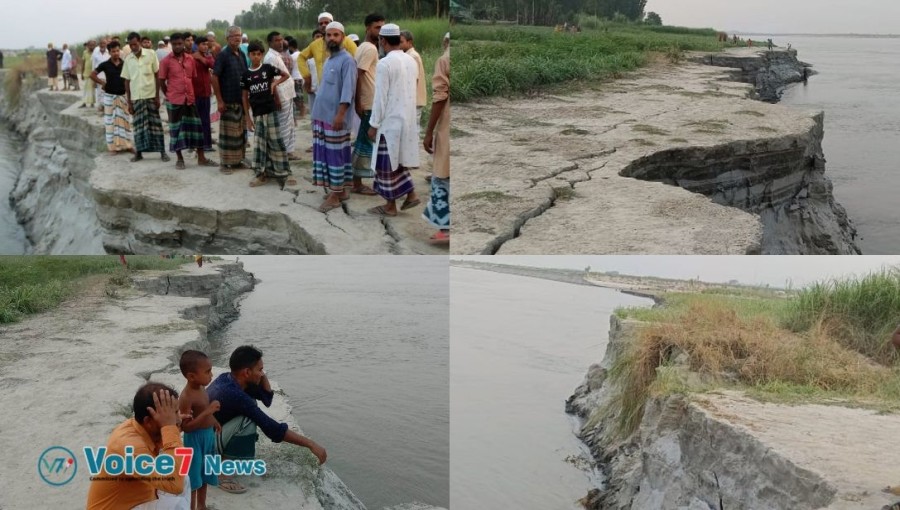





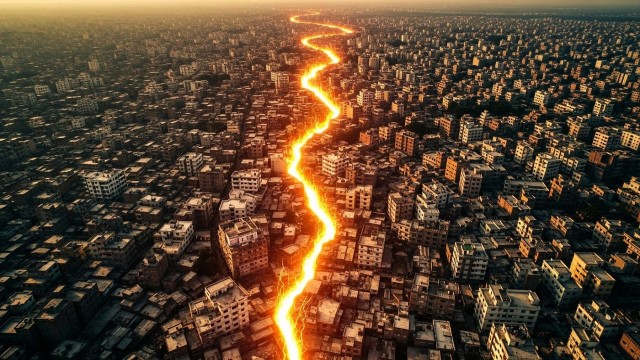
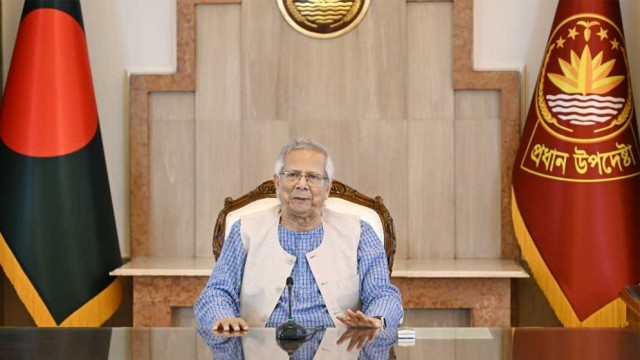
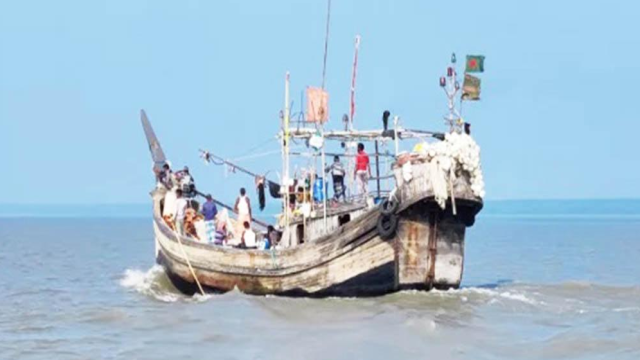
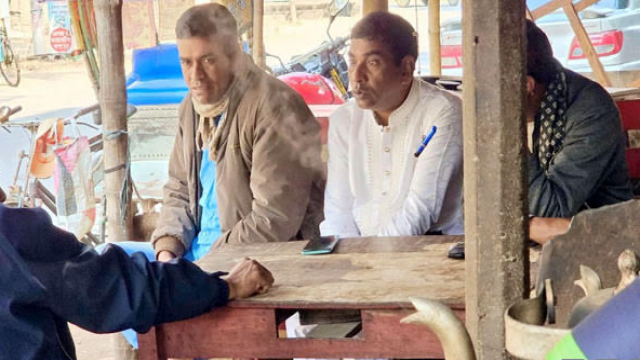


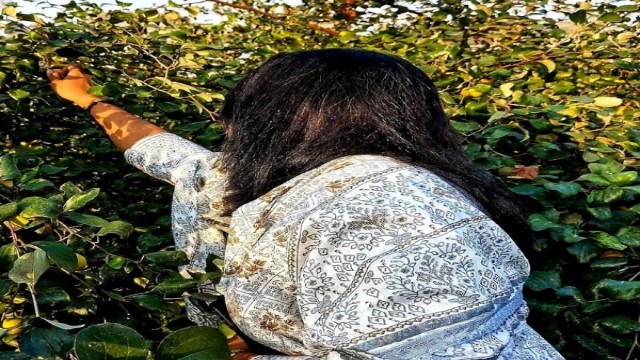
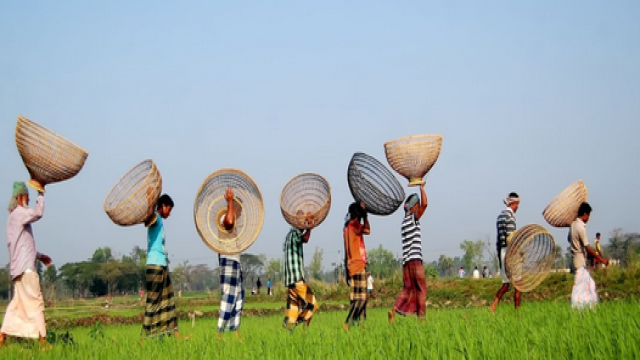
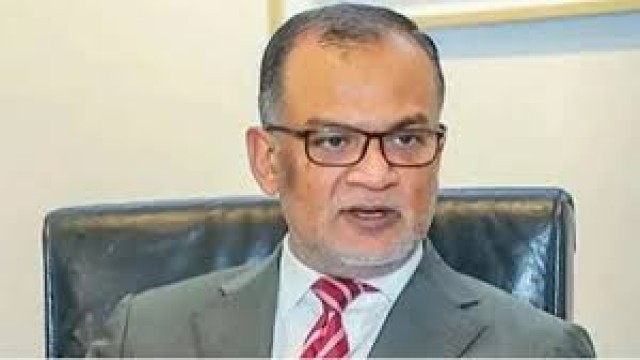













Comment: